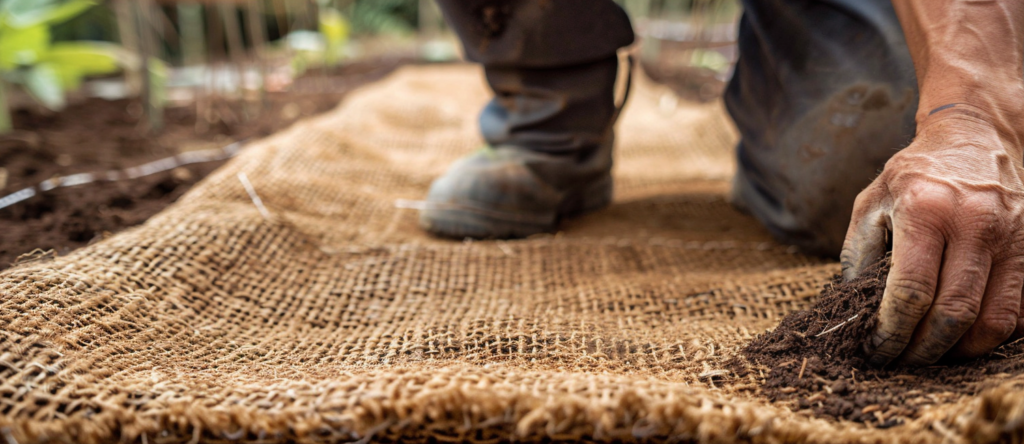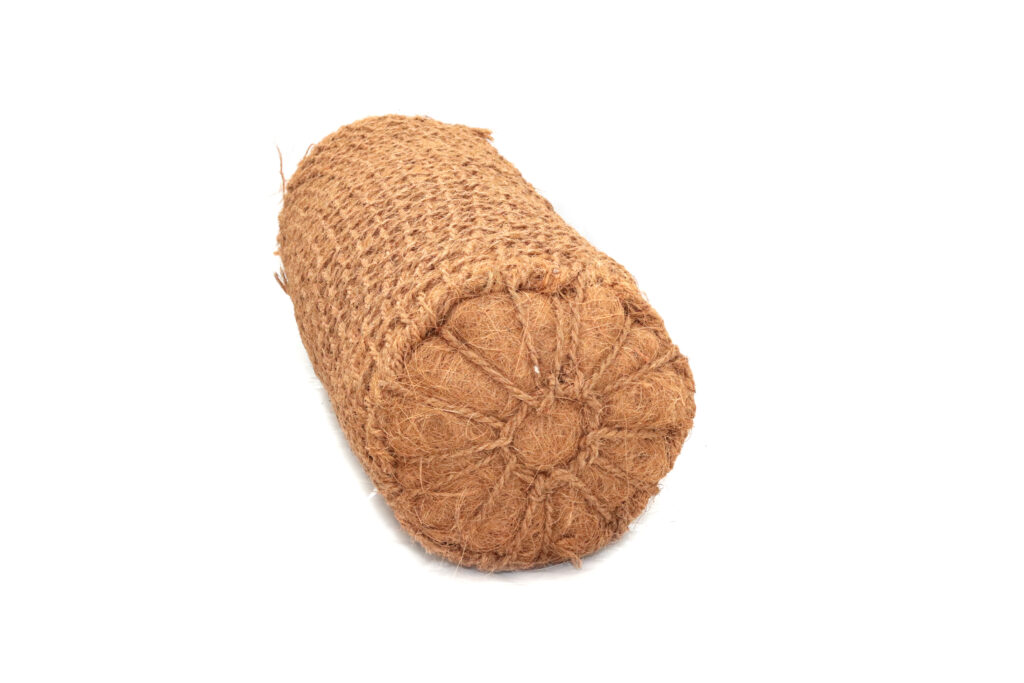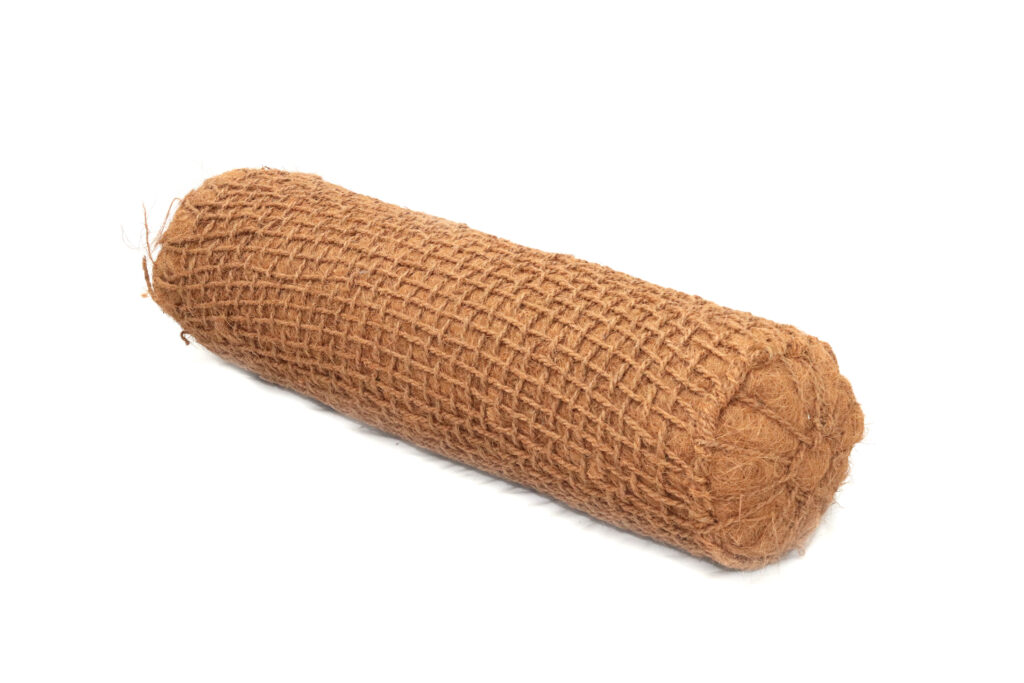

Coir Logs(Waterlogs/Biologs)


Coir Green Waterlogs – Biologs – Coirlogs are made out of cylinder/round shape netting packed with Coir fiber. Each log comprises of coir netting/matting, packed with coir coconut fiber ranging from 7 – 9kg per linear meter. The diameter of the log varies as per requirement, usually come as 20cm, 30,40cm and 50cm diameter with 2 or 4 meter length for the cylindrical logs.
Over a period of time, coir which is eco-friendly and biodegradable completely disintegrates leaving only humus, which enriches the soil.
Usage of CGlogs
- Stream bank stabilization
- Shoreline protection
- Wetland mitigation
- Channel edge liner
- Wildlife habitats
- Landscaping
Advantages of CGlogs
- Easy to install, 100% natural, eco-friendly and bio-degradable geotextile fabric
- Water absorbent coir coconut fiber acts as mulch on the surface and as a wick in the soil
- The excellent micro-climate coir provides establishment, natural invasion and balanced healthy growth.
- Coir jute matting / netting provides restoration of terrestrial and aquatic riparian habitat.
- Coir logs are an environmentally-friendly product
- Allows for deep rooting of plants while providing nutrients
- Customised to specific requirement for projects (Eg: 30cm X 2m with 7kg of coco fiber per LM….)
- Root strength provides superior shear stress protection
- Naturally resistant to mold & rot, hence needs no chemical treatment
- Native vegetation means robust growth and less maintenance
Applications
- Coir logs can easily be anchored with wooden stakes, spaced either 1, 3, or 4 feet apart, depending on the hydraulic sites condition.
- They are installed against the shoreline at the toe of the water-way.
- End of adjacent Waterlogs are tied together with coco coir twine.
- Plants are placed in the holes of the logs (on top of the log between the coir netting holding the logs together)
- Plants are usually pre-planted
Trade Inquiries
“Our air, water, soil, forests, oceans, rivers, lakes, scenic beauty, wildlife habitat, minerals, that is the wealth of the country.”
– Gaylord Nelson (1916-2005)